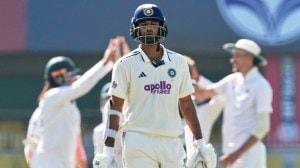What the world is reading
The race to the elections in the US is hogging headlines the world over but it’s time to turn the spotlight on the other former superpower, Russia.

The race to the elections in the US is hogging headlines the world over but it’s time to turn the spotlight on the other former superpower, Russia. It was the election weekend in Russia and as The Economist points out, the outcome was decided before the result was declared. But for the new president and Vladimir Putin’s handpicked successor, Dmitry Medvedev, the job ahead is tough. “Putin’s reputation rests on four claims advanced by his supporters. The first is that he brought political stability after the chaos of his predecessor Boris Yelstin. Second, he imposed peace in Chechnya and across the north Caucasus. Third, he restored Russia’s rightful position as a world power. Fourth, he presided over sustained rapid economic growth and a sharp rise in Russians’ living standards. Yet a closer look reveals big flaws in all these claims.”
And it is these flaws that could become stumbling blocks in the way of the rock-loving, English speaking former head of the country’s state-backed energy giant Gazprom. His future may be uncertain but what is certain is that the end of Putin’s presidency won’t necessarily be the end of his hold on Russia. As Time magazine puts it, “Medve-dev may be less the heir to Putin’s throne than its caretaker.”
This week’s New Statesman too turns its sights on Russia, exploring how energy is the key to its new relationship with Europe. Its cover story ‘Gas & gangsters’ follows the expensive and dangerous road that leads out from Russia to central and western Europe, the shadowy passage facilitated by fixers and intermediary.
The current Foreign Affairs takes a controversial view on ethnic nationalism. According to it, ethnonationalism will continue to redraw borders. “The processes that led to the dominance of the ethnonational state and the separation of ethnic groups in Europe are likely to reoccur elsewhere. Increased urbanisation, literacy, and political mobilisation; differences in the fertility rates and economic performance of various ethnic groups; and immigration will challenge the internal structures of states as well as their borders. Whether politically correct or not, ethnonationalism will continue to shape the world in the twenty-first century.”
The National Geographic, meanwhile, charters a different territory: the mind of animals. The conclusion it draws is that animals are a whole lot smarter than we think. The credit of much of this research can go to Irene Pepperberg who in 1977 set out to find out “what was on another’s creature’s mind by talking to it. She bought a one-year-old African gray parrot she named Alex and taught him how to reproduce the sounds of the English language”. Alex died last September, leaving behind his invaluable contribution to the science of understanding the mind of animals.
In The New Yorker, Salman Rushdie’s elegant prose maps the mind of an emperor. In Rushdie’s The Shelter of the World, Jodha is a creation of Akbar’s imagination. “She was an imaginary wife, dreamed up by Akbar in the way that lonely children dream up imaginary friends.” Now if only Ashutosh Gowarikar had stuck to pure fiction instead of marrying it with facts, it would have saved him a whole lot of trouble.



- 01
- 02
- 03
- 04
- 05




























